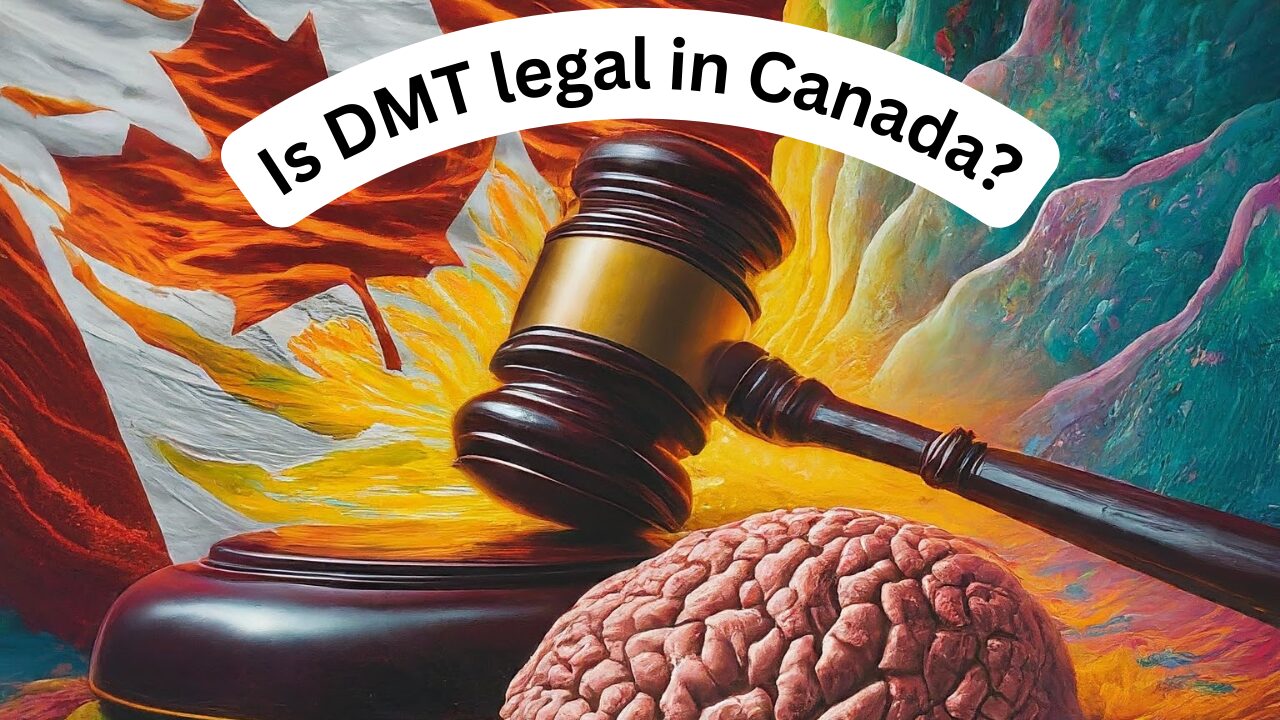Dimethyltryptamine (DMT) is a naturally occurring psychedelic compound found in certain plants and animals. Known for its potent hallucinogenic effects, DMT has been used for centuries in traditional South American shamanic practices and is also produced synthetically for recreational use. The use of DMT can induce profoundly altered states of consciousness, often described as mystical or spiritual experiences, making it a subject of fascination and research in the fields of neuroscience, psychology, and spirituality.
However, the legal status of DMT in Canada is a complex and evolving issue, with implications for its use, research, and regulation. In this article, we will delve into the history of DMT regulation in Canada, its current legal status, and the potential implications for its future.
Historical Context
The history of DMT regulation in Canada can be traced back to the early 20th century when the use of psychedelics began to gain popularity in Western cultures. At that time, DMT was not specifically regulated, and its use was largely uncontrolled. However, as concerns grew about the potential risks of psychedelics, including DMT, governments around the world began to take action to regulate their use.
In Canada, the regulation of DMT began in earnest in the 1960s and 1970s, as part of a broader effort to control the use of illicit drugs. DMT was eventually classified as a controlled substance under the Food and Drug Act, making it illegal to possess or distribute without authorization. This classification was influenced by global trends in drug control and the growing perception of psychedelics as dangerous substances with potential for abuse.
The regulation of DMT in Canada has also been shaped by cultural and social factors. The use of psychedelics, including DMT, has been associated with countercultural movements and alternative spiritual practices, leading to perceptions of DMT as a controversial and taboo substance. These cultural perceptions have influenced the legal status of DMT and continue to impact public attitudes toward its use and regulation.
Current Legal Status
Today, DMT is classified as a Schedule III controlled substance under the Controlled Drugs and Substances Act (CDSA) in Canada. This classification places DMT in the same category as other substances with recognized potential for abuse but with some accepted medical uses. As a Schedule III substance, DMT is illegal to possess, produce, sell, or distribute without a valid license or prescription.
The penalties for violating the CDSA can be severe, including fines and imprisonment. Possession of DMT for trafficking can result in even more serious consequences, including longer prison sentences and larger fines.
Despite its illegal status, DMT continues to be used in Canada, primarily for recreational purposes. Some individuals also use DMT for spiritual or religious purposes, often in the context of traditional indigenous ceremonies. However, the use of DMT in these contexts is not exempt from the law, and individuals who possess or distribute DMT for any purpose are subject to prosecution.
The legal status of DMT in Canada has significant implications for its use and research. As a controlled substance, DMT is not legally available for recreational use. However, some researchers and advocates argue that DMT should be reclassified to allow for further research into its potential therapeutic benefits.
In recent years, there has been growing interest in the potential therapeutic uses of psychedelics, including DMT, for the treatment of mental health disorders such as depression and PTSD. Some studies have suggested that DMT may have antidepressant and anxiolytic effects, although more research is needed to fully understand its therapeutic potential.
Implications for Use and Research
The legal status of DMT in Canada has significant implications for its use and research. As a controlled substance, DMT is not legally available for recreational use. However, some individuals continue to use DMT for spiritual or religious purposes, often in the context of traditional indigenous ceremonies.
Despite these cultural practices, the possession, production, sale, and distribution of DMT for any purpose remains illegal under Canadian law. Individuals in Canada should be aware that possession, production, sale, or distribution of DMT without a valid license or prescription is illegal under the Controlled Drugs and Substances Act, as outlined by the Government of Canada.
The legal restrictions on DMT have also impacted research into its potential therapeutic benefits. While some studies have suggested that DMT may have antidepressant and anxiolytic effects, research in this area is limited due to regulatory hurdles and the stigma associated with psychedelics. However, there is a growing interest in exploring the therapeutic potential of DMT and other psychedelics for the treatment of mental health disorders such as depression and PTSD.
In recent years, there have been calls to reclassify DMT to allow for more research into its therapeutic uses. Some researchers and advocates argue that the current legal restrictions on DMT are hindering scientific progress and preventing potentially life-saving treatments from being developed. However, any changes to the legal status of DMT would need to be carefully considered and based on scientific evidence to ensure the safety and well-being of the public.
Conclusion
In conclusion, DMT is currently classified as a Schedule III controlled substance under the Controlled Drugs and Substances Act in Canada, making it illegal to possess, produce, sell, or distribute without a valid license or prescription. Despite its illegal status, DMT continues to be used for recreational and spiritual purposes, posing challenges for law enforcement and regulators.
The legal status of DMT also has implications for research into its potential therapeutic benefits. While some studies suggest that DMT may have antidepressant and anxiolytic effects, research in this area is limited due to regulatory restrictions. There is a growing interest in exploring the therapeutic potential of DMT and other psychedelics. Still, any changes to their legal status would need to be based on scientific evidence and careful consideration of the risks and benefits.
FAQs
Q1. Is DMT legal in Canada?
A1. No, DMT is illegal in Canada under the Controlled Drugs and Substances Act.
Q2. Can I use DMT for spiritual purposes in Canada?
A2. No, all forms of DMT use are illegal in Canada.
Q3. Can research be conducted on DMT in Canada?
A3. Yes, research can be conducted with appropriate permits and approvals.
Q4. Are there any exceptions to DMT’s legal status in Canada?
A4. No, all use of DMT is illegal without authorization.
Q5. What are the penalties for possessing or distributing DMT in Canada?
A5. Penalties for possessing or distributing DMT can include fines and imprisonment.
Q6. Can DMT be prescribed by a doctor in Canada?
A6. No, DMT is not approved for medical use in Canada.

Alex is a seasoned writer and researcher, specializing in psychedelic studies and mental health. Known for insightful and authoritative content, he combines extensive knowledge with a passion for exploring wellness and alternative therapies. Alex’s work is a trusted resource for readers delving into the world of mental well-being.


Leave a Reply